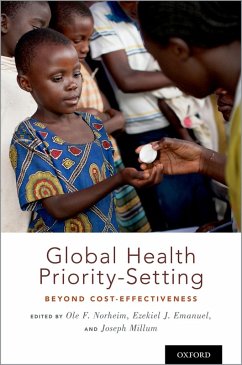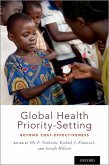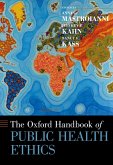Global health is at a crossroads. The 2030 Agenda for Sustainable Development has come with ambitious targets for health and health services worldwide. To reach these targets, many more billions of dollars need to be spent on health. However, development assistance for health has plateaued and domestic funding on health in most countries is growing at rates too low to close the financing gap. National and international decision-makers face tough choices about how scarce health care resources should be spent. Should additional funds be spent on primary prevention of stroke, treating childhood cancer, or expanding treatment for HIV/AIDS? Should health coverage decisions take into account the effects of illness on productivity, household finances, and children's educational attainment, or just focus on health outcomes? Does age matter for priority setting or should it be ignored? Are health gains far in the future less important than gains in the present? Should higher priority be given to people who are sicker or poorer?
Global Health Priority-Setting provides a framework for how to think about evidence-based priority-setting in health. Over 18 chapters, ethicists, philosophers, economists, policy-makers, and clinicians from around the world assess the state of current practice in national and global priority setting, describe new tools and methodologies to address establishing global health priorities, and tackle the most important ethical questions that decision-makers must consider in allocating health resources.
Dieser Download kann aus rechtlichen Gründen nur mit Rechnungsadresse in A, B, BG, CY, CZ, D, DK, EW, E, FIN, F, GR, HR, H, IRL, I, LT, L, LR, M, NL, PL, P, R, S, SLO, SK ausgeliefert werden.









